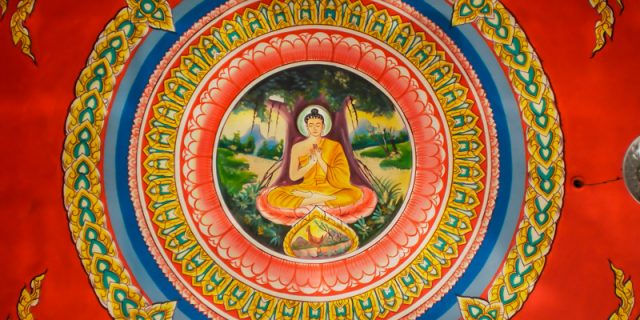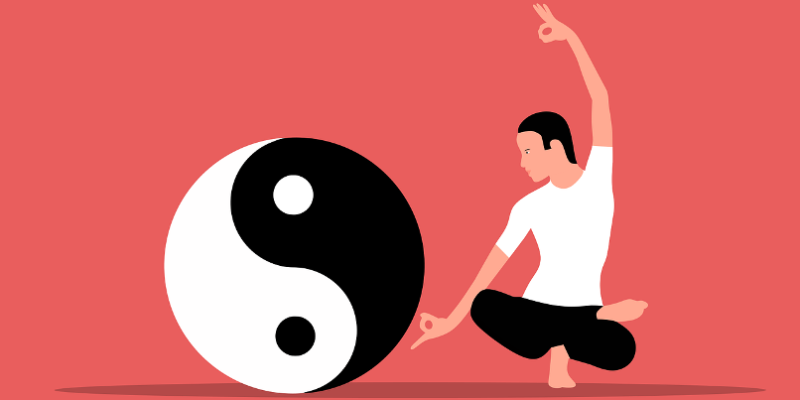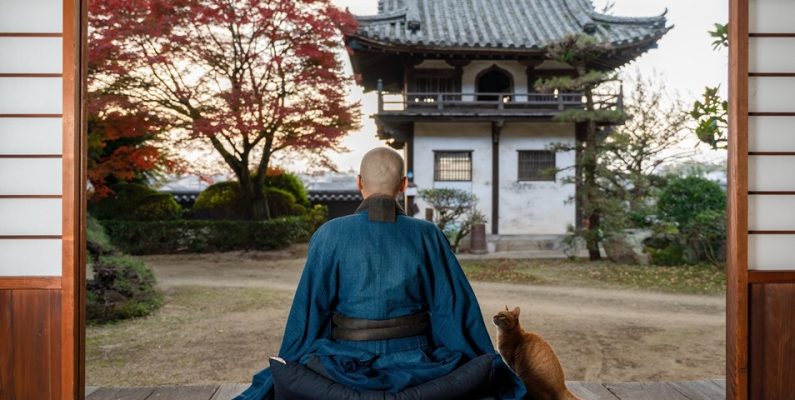
Zen Buddhism is the Japanese version of Chinese Chan Buddhism, the latter being a lineage of Mahayana Buddhism. Mahayana Buddhism is one of the two major Buddhist lineages originating in India, besides Theravada Buddhism.

Buddhism was introduced in China between the 1st and 2nd century CE. The Chan School developed as from the late 5th century CE onwards, finally reaching Japan in the 12th century CE, where the word Chan became Zen. The Chinese word Chan (Chánnà) comes from the Sanskrit Dyana, meaning “absorption,” “meditation,” “meditative state,” or “training of the mind.”
It’s widely acknowledged that Myoan Eisai (Yosai), a Japanese Buddhist priest (1141 – 1215), founded Zen Buddhism in Japan through what today is called the Rinzai School (the Japanese translation of the Chinese Chan Linji School). Later, various other Zen schools were established representing slightly different approaches to practicing Zen, such as the Sōtō Zen School and Ōbaku Zen School, among some others.
Nevertheless, to avoid confusion, it’s important to realize that Buddhism itself had reached Japan long before (in the 6th century CE), with at the time of establishing Zen Buddhism (12th century) a wide range of already existing Buddhist schools and lineages.
Zen Buddhism is characterized by focusing on self-control, meditation (notably sitting meditation, that is, Zazen Meditation), insight into the nature of mind and things, and the expression of this insight in daily life. Zen doesn’t reject the classic Buddhist scriptures and doctrine, but rather emphasizes direct, living insight through spiritual practice and interaction with a Zen Buddhist Master.

Other core Zen Buddhist viewpoints are that of “emptiness,” meaning there’s no Self or separate identity, and the idea of all living creatures having the Buddha-nature, that is, all human beings can awaken to insight (in this life) and attain Buddhahood or Spiritual Enlightenment.
Zen Buddhism also occupies itself with arts, bodywork, martial arts, and physical cultivation, seen as a means to enhance and express the spiritual practice, being deeply influenced by Chinese Taoist ideas of physical exercises (for instance, Tao Yin), breathing and energy cultivation, and using Chinese-Taoist concepts such as Qi, Jing, and the Dantien.
Additionally, the use of chants, mantras, koans, incantations, recitations, rituals, and ceremonies maybe part of the Zen practice, depending on the Zen lineage or specific Zen temple.

















